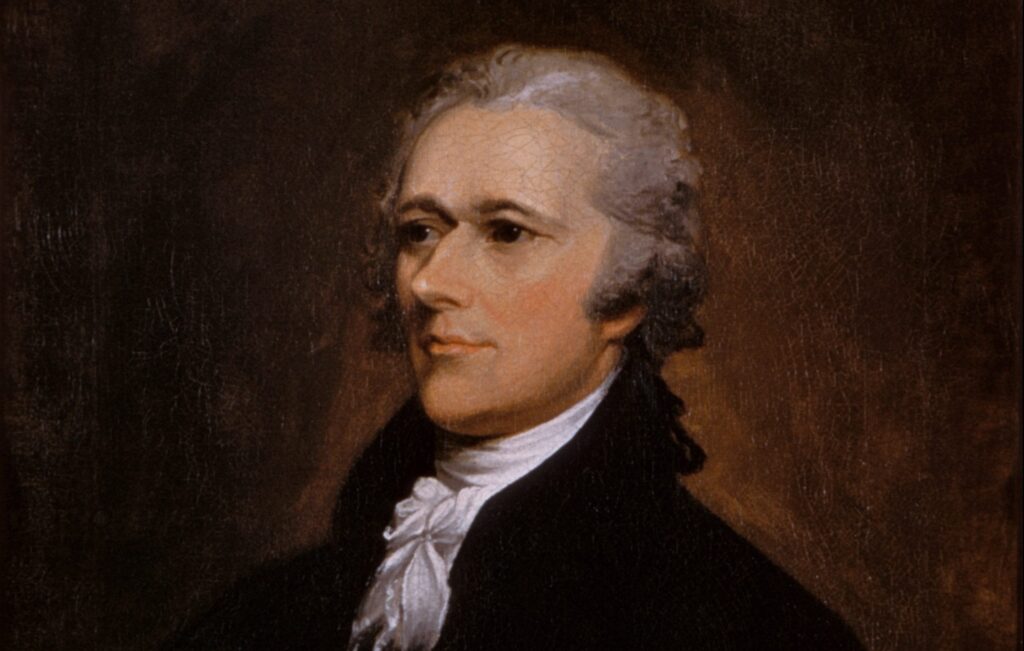Question the Third proposed by the President of the United States.—”If a minister from the republic of France shall be received, shall it be absolutely, or with qualifications; and if with qualifications, of what kind?”
Answer
…The treaties between the United States and France were made with His Most Christian Majesty, his heirs and successors. The government of France which existed at the time those treaties were made, gave way, in the first instance, to a new constitution, formed by the representatives of the nation, and accepted by the king, which went into regular operation. Of a sudden a tumultuous rising took place. The king was seized, imprisoned, and declared to be suspended by the authority of the National Assembly, a body delegated to exercise the legislative functions of the already established government—in no shape authorized to divest any other of the constituted authorities of its legal capacities or powers. So far, then, what was done was a manifest assumption of power…
In the last place, the late king of France has been tried and condemned by the convention, and has suffered death…
This great and important question arises out of the facts which have been stated:
Are the United States bound, by the principles of the laws of nations, to consider the treaties heretofore made with France as in present force and operation between them and the actual governing powers of the French nation? or may they elect to consider their operation as suspended, reserving also a right to judge finally whether any such changes have happened in the political affairs of France as may justify a renunciation of those treaties?
It is believed that they have an option to consider the operation of those treaties as suspended, and will have eventually a right to renounce them, if such changes shall take place as can bona fide be pronounced to render a continuance of the connections which result from them disadvantageous or dangerous.
There are two general propositions which may be opposed to this opinion:—1st. That a nation has a right, in its own discretion, to change its form of government—to abolish one, and substitute another. 2d. That real treaties (of which description those in question are) bind the NATIONS whose governments contract, and continue in force notwithstanding any changes which happen in the forms of their government.
The truth of the first proposition ought to be admitted in its fullest latitude. But it will by no means follow, that, because a nation has a right to manage its own concerns as it thinks fit, and to make such changes in its political institutions as itself judges best calculated to promote its interests, it has therefore a right to involve other nations, with whom it may have had connections, absolutely and unconditionally, in the consequences of the changes which it may think proper to make. This would be to give to a nation or society not only a power over its own happiness, but a power over the happiness of other nations or societies. It would be to extend the operation of the maxim much beyond the reason of it, which is simply, that every nation ought to have a right to provide for its own happiness.
If, then, a nation thinks fit to make changes in its government, which render treaties that before subsisted between it and another nation useless, or dangerous, or hurtful to that other nation, it is a plain dictate of reason, that the latter will have a right to renounce those treaties; because it also has a right to take care of its own happiness, and cannot be obliged to suffer this to be impaired by the means which its neighbor or ally may have adopted for its own advantage, contrary to the ancient state of things…
A struggle for liberty is in itself respectable and glorious; when conducted with magnanimity, justice, and humanity, it ought to command the admiration of every friend to human nature; but if sullied by crimes and extravagances, it loses its respectability. Though success may rescue it from infamy, it cannot, in the opinion of the sober part of mankind, attach to it much positive merit or praise. But in the event of a want of success, a general execration must attend it.
It appears, thus far, but too probable, that the pending revolution of France has sustained some serious blemishes. There is too much ground to anticipate that a sentence uncommonly severe will be passed upon it if it fails.
Will it be well for the United States to expose their reputation to the issue, by implicating themselves as associates? Will their reputation be promoted by a successful issue? What will it suffer by the reverse?
These questions suggest very serious considerations to a mind anxious for the reputation of the country—anxious that it may emulate a character of sobriety, moderation, justice, and love of order…



